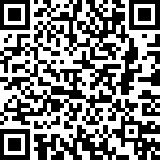By the start of January I had finished half of my internship session at LSF. During the mid of January the RMSs visit to Sri Lanaka took place and I was so fortunate enough to engaged with several activities (doing a presentation about Sahana, going out for a lunch with RMS and the LSF Sahana Team, listening to several of his speeches, etc… ). I was so fortunate to meet the father of Free Software Foundation specially since I was also engaged in a project that follows his philosophy that software should be freely available for the well being of mankind.
During the February and March I dedicated most of my time contributing to the Sahana project. Activities such as fixing bugs, testing, developing a new functionality that transforms the Web page to a printable HCR(or OCR) friendly form that can be used for collection of data to the system through the means of paper forms, etc..
The six months internship period at LSF ended on 22nd of April. I had my first experience of developing a web site using the Joomla CMS, it was really challenging and exciting.
The second semester for level two started on May. This time we had the choice of selecting the subjects so I selected three out of the electives and had two more on the compulsory list. Meanwhile the level 3 project was there as well and it was a group one. We selected to do a computer networking related project. Our project involves developing a system capable of monitoring and diagnosing the entire network infrastructure of an organisation. It was a six members group, and our task was to develop it by end of the semester which was due for September. Throughout the semester we worked hard on it get it as we have expected. Most of the credits should go to Thushara and Shashi for their inspiring coding style. We called our system Network Doctor: a Multi Agent system for Network Troubleshooting and Monitoring.
We moved on to our new Faculty premises during the end of August, to mark this the Faculty organized several events. One of them was a symposium under the theme Graduation, Entrepreneurship and Success at our Faculty premises. It was attended by the Faculty staff, all the past and present students and the distinguish invitees of the industry. I was so fortunate to hold the first official event on the opening day of our new Faculty building apart from the opening ceremony. It was a seminar conducted by Dr. Damith Chathura Rajapakse from NUS School of Computing on Postgraduate opportunities at NUS as the President of intecs(although most of our colleagues called our society as nothing happens, because the slogan says it happens).
From the mid of September once again I joined LSF as an undergraduate research fellowship for a period of one year. It always encourages students to take up challenges to come up with innovative software solutions for the benefit of the society through it projects(Sahana, etc…) using free software. During the month of October Sahana community offered me the Committer status in the Sahana project as a recognition for my contributions. Holding a committer status in a Free and Open Source Software project is very prestigious and rewarding.
During the start of November the first semester for the level 4 started and it offered us innovative and challenging subjects to select from. It included Multi Agent Systems, Fuzzy Logic, Advance Mathematics, Theory of Complexity and Computability, Geographic Information System, Mobile Computing, Broadband Networks,Distributed Computing as electives plus Business Law and Advance IT Project Management as compulsory and an individual project.
These days I’m working on writing a paper to be submitted to ISCRAM on part of the work I did during my internship period at LSF.
To me the year 2008 was a year full of excitement and fun and it left me a hand full of memories that made my university life memorable and meaningful. Finally I would like to see an end to the war against LTTE terrorism in my country that cause great sorrow and misery to all of the fellow citizens of Sri Lanka despite the race they belongs to for the past couple of decades. So expecting to see a year full of peace and end to wars against humanity around the world during 2009.
